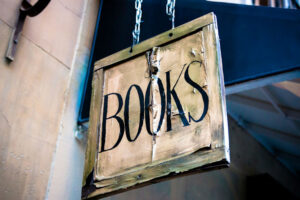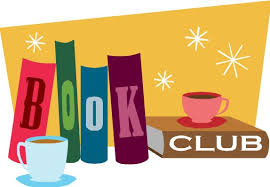Good Book Followup and Writing News
Terry Odell
Last time, I talked about a book I read because it was a book club choice, and gave my reasons for not liking it despite all the accolades it had received. Last week, our book club met. (Note, the club’s name is Wine, Women and Words. Needless to say, we enjoyed our libations as we discussed the book. And there’s food, too.)
There were eleven of us present. Most of us are well beyond our 50s. I may have mentioned previously that one of the reasons (beyond the wine) that I enjoy our meetings is because it’s a good look at how “readers” read, which is very different from the way authors read.
Our discussion was lively, and opinions were widespread. Some loved character X (I think there were 7 POV characters, all female), others disliked her, and often for totally different reasons. Some liked the way the timelines bounced around from decade to decade, others complained that a character’s thread was abandoned until much later in the book. At the end of our discussion, which went on much longer than usual, everyone scores the book from 1 (terrible) to 10 (loved it) and gives reasons, which in this case ranged from “I was a camp counselor, so I could relate to that part of the book,” to “I thought the ending was totally unrealistic,” to “I didn’t like the time jumps,” to “Why didn’t any of the POV characters stand up for themselves?” The last one led to more discussion, because she eventually did stand up for herself, but then did something everyone thought was totally stupid at the end of the book.
The book’s average score was 6.5, with nothing higher than a 7, which is unusual for our group. Usually there are 8s, and often a few 9s. I don’t recall ever seeing someone rank it a 10 or a 1, but I haven’t been a member as long as many in the group, and my memory isn’t that great these days.
Does not liking a book make it a ‘bad’ book? Does liking it make it ‘good?’ I confess I was surprised to see that this book is a finalist for a major mystery award. Given the judges are all authors made it all the more surprising to me, but apparently they’re seeing things differently. And isn’t that what it’s all about?
Now, a little on the writing front.
I have a title! For me, that’s one of the last things I manage to come up with. Danger Abroad.
And a tag line: When breaking family ties is the only option.
I sent my cover designer potential backgrounds for the book from the pictures I took in the Faroes. I might share the process in a later post, once everything is finalized. For now, this is the image she’s working with, and she’ll apply her artistic talents to making it appropriate for a book cover.

I’ve gone through my manuscript from my printout, run it through SmartEdit, and it’s almost ready to send. I have a tendency to start sentences with But, I overuse back and there are a lot of unnecessary thats. In the adverb department, only was another culprit. My critique partners are just past the halfway point, and despite all my efforts, they’re finding little glitches. If the manuscript was perfect, I wouldn’t need an editor, right?
I’ve started bits and pieces of the dreaded marketing process. As I read through the manuscript, I made notes of potential quotes to use in promotion. Then, using Canva, I can turn them into little promo images, such as this one.

Another source I use is Mockup Shots, which will create images using your book cover. Although they have ways to manipulate the images, I’ve found I’m more comfortable taking them over to Canva, since I’ve been using it longer and am familiar with its menus.
I also have to come up with the description for the distribution sites.
Somehow, writing the book is easier for me than distilling it down to its essence. As an indie author, I am glad I no longer have to deal with query letters and synopses, although the book description is similar. The big difference, for me, is that the description doesn’t have to cover the whole book. I prefer not to mention anything that shows up after the fifth chapter, and usually try to have it not go beyond chapter three.
This is what I have so far. (It’s a romantic suspense.)
Madison Westfield has information that could short-circuit her politician father’s campaign for governor. But he’s family. Although he was a father more in word than deed, she changes her identity and leaves the country rather than blow the whistle. All seems fine until her father hires Blackthorne, Inc. to find her. All they have to go on is that her passport was used at the airport in Copenhagen.
Logan Bolt is happiest when he’s designing security systems for Blackthorne’s wealthy clients. When the latest installation in Copenhagen keeps him from receiving the last text his sister would ever send, he uses his vacation time to find out more about her death. Because he’s already there, Blackthorne taps him to track down Madison. When he finds her in the Faroe Islands, her story doesn’t match the one her father told Blackthorne. The investigation assignment quickly switches to personal protection for Madison.
Madison’s not convinced she needs protection, but learning her father wants her found has her reluctantly accepting Logan’s bodyguard duty. She thinks of herself as being Logan’s ball and chain, but they slowly learn that working together benefits both of them. Soon, they’re involved with a drug ring and a kidnapping attempt. Will working together spark a relationship?
Comments welcome on any aspect of this post.
New! Find me at Substack with Writings and Wanderings
Double Intrigue
When your dream assignment turns into more than you bargained for
 Shalah Kennedy has dreams of becoming a senior travel advisor—one who actually gets to travel. Her big break comes when the agency’s “Golden Girl” is hospitalized and Shalah is sent on a Danube River cruise in her place. She’s the only advisor in the agency with a knowledge of photography, and she’s determined to get stunning images for the agency’s website.
Shalah Kennedy has dreams of becoming a senior travel advisor—one who actually gets to travel. Her big break comes when the agency’s “Golden Girl” is hospitalized and Shalah is sent on a Danube River cruise in her place. She’s the only advisor in the agency with a knowledge of photography, and she’s determined to get stunning images for the agency’s website.
Aleksy Jakes wants out. He’s been working for an unscrupulous taskmaster in Prague, and he’s had enough. When he spots one of his coworkers in a Prague hotel restaurant, he’s shocked to discover she’s not who he thought she was.
As Shalah and Aleksy cruise along the Danube, the simple excursion soon becomes an adventure neither of them imagined.
 Like bang for your buck? I have a new Mapleton Bundle. Books 4, 5, and 6 for one low price.
Like bang for your buck? I have a new Mapleton Bundle. Books 4, 5, and 6 for one low price.
 Terry Odell is an award-winning author of Mystery and Romantic Suspense, although she prefers to think of them all as “Mysteries with Relationships.”
Terry Odell is an award-winning author of Mystery and Romantic Suspense, although she prefers to think of them all as “Mysteries with Relationships.”







